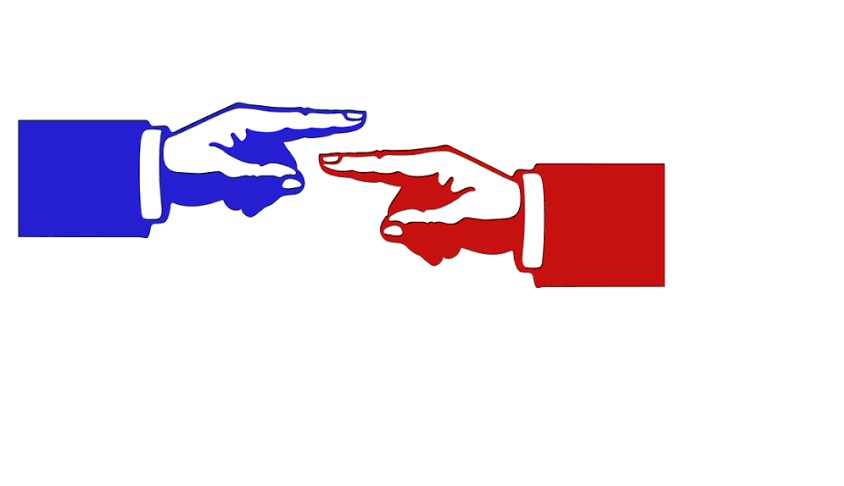Whenever a terrorist attack occurs anywhere in the world, people in Pakistan hope and pray that the perpetrator isn’t from Pakistan. After every such incident, Pakistan is among the first to condemn the attack and assure the world that Pakistan does not support terrorism in any shape or form.
Even then, on a number of occasions when such an incident has taken place, Pakistan has directly or indirectly been blamed for the attack. This happened in Mumbai, New York Times Square, Pathankot, Uri, and the recent incident of Pulwama. The fingers began immediately pointing at Pakistan, and the world media jumped to the conclusion that the culpability must have been Pakistani. A frenzy always ensues in the search for a Pakistani connection. Perhaps the perpetrator had traveled to Pakistan’s tribal areas for training. Perhaps he was of Pakistani descent.
Moreover, both global and regional powers once again ask Pakistan to take strict measures against terrorist hideouts as well as against personalities inside Pakistan. Likewise, the “do more and do more” tune starts ringing again. As a result, Pakistan is compelled to reassert that it is just as much a peace-loving nation as any other and that it has suffered a heavier toll (if only the international media cared) from terrorism.
The gears continue to turn beyond the media. In the economic sphere, the Financial Action Task Force (FATF) has put Pakistan in the grey list on the pretext of terror financing and further seeks to look to place Pakistan on its blacklist. If Pakistan is placed on the blacklist, it will have a negative impact on the economy of Pakistan.
The FATF is an intergovernmental organization founded by the G7 in 1989 to combat money laundering but has since morphed into a global financial watchdog. Moreover, the United Nations Security Council 1617 (2005) urges all member states to implement the FATF recommendations on money laundering and terror financing. But the resolution does not empower the FATF to penalize countries by blacklisting them.
Moreover, Pakistan is not a member of FATF but is only a voluntary member of the Asia-Pacific Group (APG) i.e. a subcommittee of FATF. The APG that is reviewing the case of Pakistan is to be co-chaired by India. If a hostile nation such as India co-chairs the meeting of APG, it is simply not possible that the review of Pakistan’s case will be done in a fair, unbiased and objective manner. Therefore, Pakistan should take a stand against the dubious action of the FATF/ APG when India co-chairs the meeting of APG and the chances of Pakistan being treated fairly are next to none.
Moreover, in 1999 the UN Security Council through resolution 1267 setup the al-Qaeda/Taliban sanctions committee to impose sanctions on those parties that deal with al-Qaeda and the Taliban. Subsequently, in 2011, the Security Council made it the al-Qaeda sanction committee and in 2015 it was made ISIL and al-Qaeda sanction committee. Now, this committee is looking into the case of Masood Azhar since India has requested the committee to add Azhar’s name to the global list of terrorists.
This committee was mandated to look into ISIL, al-Qaeda, and the Taliban, and it has no mandate to investigate any other case. The case of Masood Azhar is fundamentally different from that any of the above-mentioned groups. Pakistan must clarify to the United Nations that the case of Masood Azhar does not fall under the mandate of the committee set up under UNSCR 1267. Pakistan must thus question the mandate of the committee before it even moves to justify the actions taken by Pakistan.
Now the time has come that the world recognizes the efforts made by Pakistan against terrorism. In order to make the world recognize Pakistan’s efforts, we will have to make some serious effort. The role of leadership is very important in this context, as proactive leadership from the Prime Minister, the Foreign Office and other institutions can spearhead this drive to reassert the legitimate perspective of Pakistan as a crucial champion against radicalism around the world.
Recent white supremacist acts around the world corroborate Pakistan’s point that no country has a monopoly on vice or virtue, and through great national sacrifice, Pakistan has already done more than virtually any other country to defeat the scourge of extremist thought. Pakistan should reassure the world that we are the victims of terrorism and not sponsor. In this context, the government needs to tell the world about the involvement of hostile intelligence agencies’ activities in Pakistan, particularly India’s RAW.
In essence, we must change our apologetic approach towards the world. We must stop feeling guilty and let ourselves be thought of as the trouble makers in the community of nations. We must stand up with dignity and defend our homeland, both as a state and as a symbol.
Zuhaib Anwar is a Researcher at Centre for Aerospace and Security Studies (CASS). He can be reached at [email protected].





